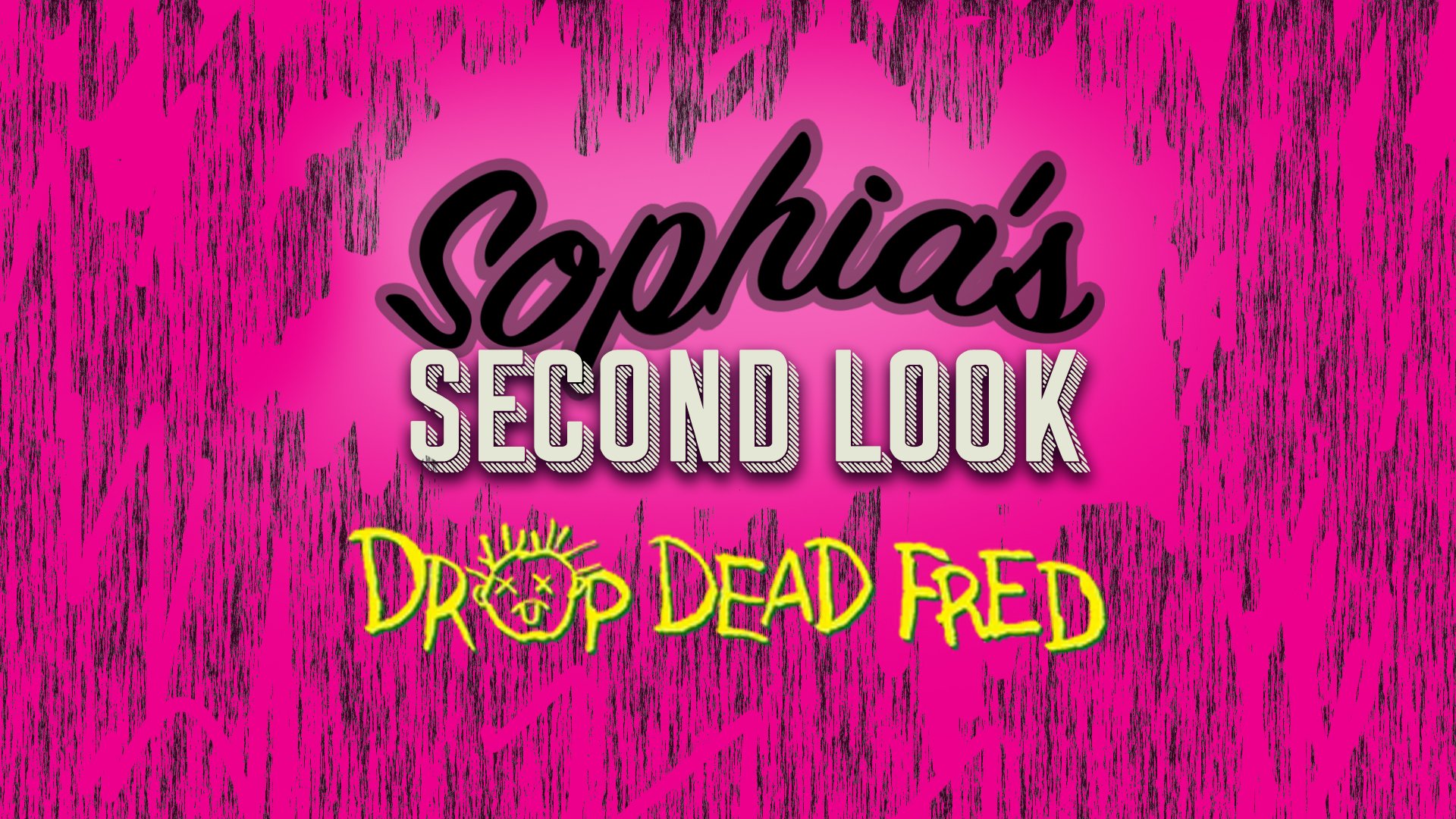By Sophia Anita Reyes ( @sophia_toto_girlpower )
I recently rewatched Drop Dead Fred, the 1991 dark comedy/fantasy film for the first time since I was about 11 years old. I am unsure why I had such fond happy memories of this misunderstood box office flop. After watching the film as a 34 year old woman, I was in an immobile physical state of shock. I sat there for about 10 mins alternating from sobbing my eyes out, to staring at the wall with my mouth wide open thinking “What the hell did I just watch?” and “What are these feelings I am feeling?!”
Drop Dead Fred is about a grown woman named Elizabth whose agent of chaos, childhood imaginary friend Fred, comes back to help her take control of her life. Her life that is very much in the hands of her ultra dominant, power tripping mother who Fred likes to call “the Mega bitch”, and her manipulative weasel like fiancé. The film has many flashbacks of the destruction and ruin that Fred and Elizabth caused, which drove her mother to insanity.
Drop Dead Fred (Rik Mayall) and Elizabeth “Lizzie” (Phoebe Cates) in Drop Dead Fred.
I have this gut feeling that there is one important question that no one asked on set or during production, not the producers, the actors, or even the director. The question is, who is this movie for? Is it for kids? The whole family? Or the scariest answer.. is it for me? After I was able to come out of my immobile state of shock, I realized that the film is a grotesque but beautiful guide on how to love your younger self by battling your childhood trauma. That’s when I also realized that yes, this film is for me, someone who has had trouble challenging authority since a young age and staying away from manipulative weasels. Along with being a movie that will completely just fuck with your un-dealt emotions, it is kind of a cinematic masterpiece in itself. The story progression, character development, set design, special effects makeup, et cetera, are all flawless. There are no holes in this film, no dull moments. The most powerful scene is at the very end when Elizabeth becomes so overwhelmed with her trauma that she passes out and takes a trip into her imagination and back to her childhood home with Fred, where it is time to face her biggest fears.
Elizabeth “Lizzie” (Phoebe Cates) and Drop Dead Fred (Rik Mayall) in Drop Dead Fred.
The inside of the immaculate house is enormous and dark. Menacing shadows looming everywhere and furniture with edges so sharp they look like they could cut you. Elizabeth uses her imagination to navigate the intimidating home. Standing there as a grown woman she puts her hands on her temples, shuts her eyes. Suddenly a giant beautiful tree grows in the middle of the foyer. This particular moment really gutted me. Seeing a grown woman confidently tap into her imagination to solve a problem was a shocking sight to see. Using your imagination is what children do, not adults. We grew up, we are not allowed to be silly or fantastical anymore. Fred and Elizabeth climb the tree, but unfortunately her mother is waiting at the top of the stairs, guarding Elizabeth's childhood bedroom door, not allowing them to pass.
Elizabeth fearlessly screams “I’m not afraid of you!” in her mother’s face and after hearing this, the mother bursts into epic flames. At this point, my face is soaked with tears, how could this film get under my skin any deeper than it already has? Well you just wait.
In the beginning of the film, Elizabeth's mother has had enough of her tiny daughter’s rebellion and duct tapes Fred back into his jack in the box so he can never escape again. When grown up Elizabth opens the bedroom door that her mother was guarding, she finds her childhood self duct taped to the bed. Elizabeth tears the duct tape away and gives her younger self a big hug, telling her “we don’t have to be afraid anymore”. The duct tape represents the constricting restraint that the mother had over Elizabeth, and the tearing represents Elizabeth using her voice and taking the power back. Do you understand now why I was in such a state of vulnerability and shock?
Drop Dead Fred (Rik Mayall) and Elizabeth’s mother Polly (Marsha Mason) in Drop Dead Fred.
To be honest, I’m not surprised that his film was a giant flop. No one understood it, but most importantly, no one cared to try and understand it. If they did, they would see that it is a beautifully dark film that challenges its audience to be vulnerable, and to not be ashamed of using your imagination.




